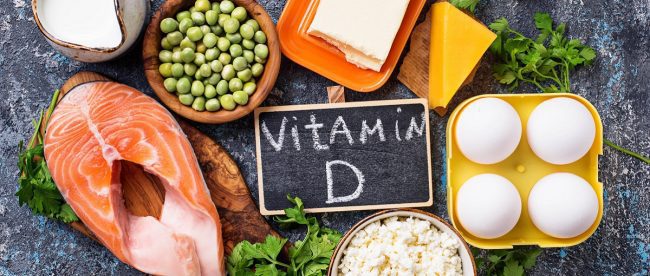Should I take vitamin D supplements?
Vitamin D has quite rightly been making regular press appearances in the last few years. But the sunshine vitamin recently shot to superstardom with reports that it may help protect against and reduce the severity of Covid-19.
In recent years, scientists developed a new way of measuring vitamin D levels in the blood, and there has been a stream of studies and trials since. What has been clear is that;
a) more people are low in vitamin D than anyone realised; and…
b) vitamin D deficiency seems to be related to pretty much every disease and condition you can think of.
It’s easy to understand why vitamin D levels might be perilously low in the colder months. You make vitamin D with the help of certain UVB rays from the sun, which then covert a cholesterol-based substance in your skin to vitamin D. This you then absorb into your bloodstream and convert it to other forms in your body. But it’s not just as straightforward as getting a bit of sun.
You can get it from the sun, but it has to be the right sun
To get the right sunrays, the sun needs to be at least 50 degrees above the horizon. Lower than that and they just bounce off the ozone layer back into space. In autumn, winter and early spring, the sun is never high enough in the UK (and similar distances away from the equinox elsewhere in the world). So even on a crisp, sunny winter’s day, you won’t be making any vitamin D on your daily walk or run.
The rest of the year, varying amounts of time in the morning and afternoon are also lacking in vitamin D potential. So again, that pre-work or post-work stroll, run or sea swim won’t do it. The way to tell if the sun is high enough in the sky is to look at your shadow: if it’s shorter than you, then yes, but if it’s longer than you it’s too low.

Even then, there are factors that can get in the way, like sun block, clothing, clouds, pollution, having darker skin… which partly explains why vitamin D deficiency is a problem worldwide, not just in the colder, greyer zones.
How does vitamin D help protect against disease?
There are several mechanisms, and scientists are exploring new ones all the time. For a start, vitamin D blocks a number of inflammation pathways, so can be described as an anti-inflammatory. It also seems to prevent viruses, including Covid-19, from attaching to and entering your cells.
In addition, a form of vitamin D acts at genetic level, helping to stop disease genes from being expressed.
How much vitamin D should you be taking, and can you get it from food?
You can get vitamin D from oily fish, and a little from eggs and mushrooms. However, most health experts are currently suggesting that people supplement with vitamin D3 drops, sprays or tablets.
How much you need depends on your current levels. Your GP may offer you a blood test for this, or you can order bloodspot tests online quite cheaply. These are kits where you prick your finger and send a small sample of blood to be tested.
If the result comes back at around 50-60, this is deemed to be adequate, but not optimal. I would still suggest supplementing. If your test comes back at around 200 or more, then you’re taking too much, so stop!
To address very low levels, you may need to sake around 5000-10000iu vitamin D a day, but if your levels are pretty good, then 1000-2000iu daily should see you through winter. You may want to test periodically to make sure.
Like this article? You may like to read about how to boost your immune system
Do supplements always work?
I often recommend taking a supplement that also contains vitamin K2, as the two work together well. When you increase vitamin D, you also absorb more calcium, and vitamin K2 helps make sure that calcium goes towards strengthening your bones and teeth.
The human body is a complex thing, and sometimes adding in a missing nutrient is not the whole picture. In the case of vitamin D, for example, it will only carry out some of its functions if there are working vitamin D receptors (VDRs) in place. This is unfortunately not always the case, often for genetic reasons. So there is never a guarantee that correcting a deficiency with supplements will do the job.
There is still not enough research to know exactly what extra support needs to be in place. What has increasingly become apparent, though, is the importance of a varied and well-balanced wholefood diet, good hydration, regular exercise and regular practices that help reduce stress.
So don’t give up on good quality supplements – just make sure you’re giving your body the best chance to use them well. And with relation to Covid-19, keep an eye out for the results of a current trial to see if vitamin D supplementation actually works.
Silver Lifestyle – time to get your silver on with our retreats and products

Kirsten Chick is a nutritional therapist and lecturer, and author of Nutrition Brought to Life.



Leave a comment